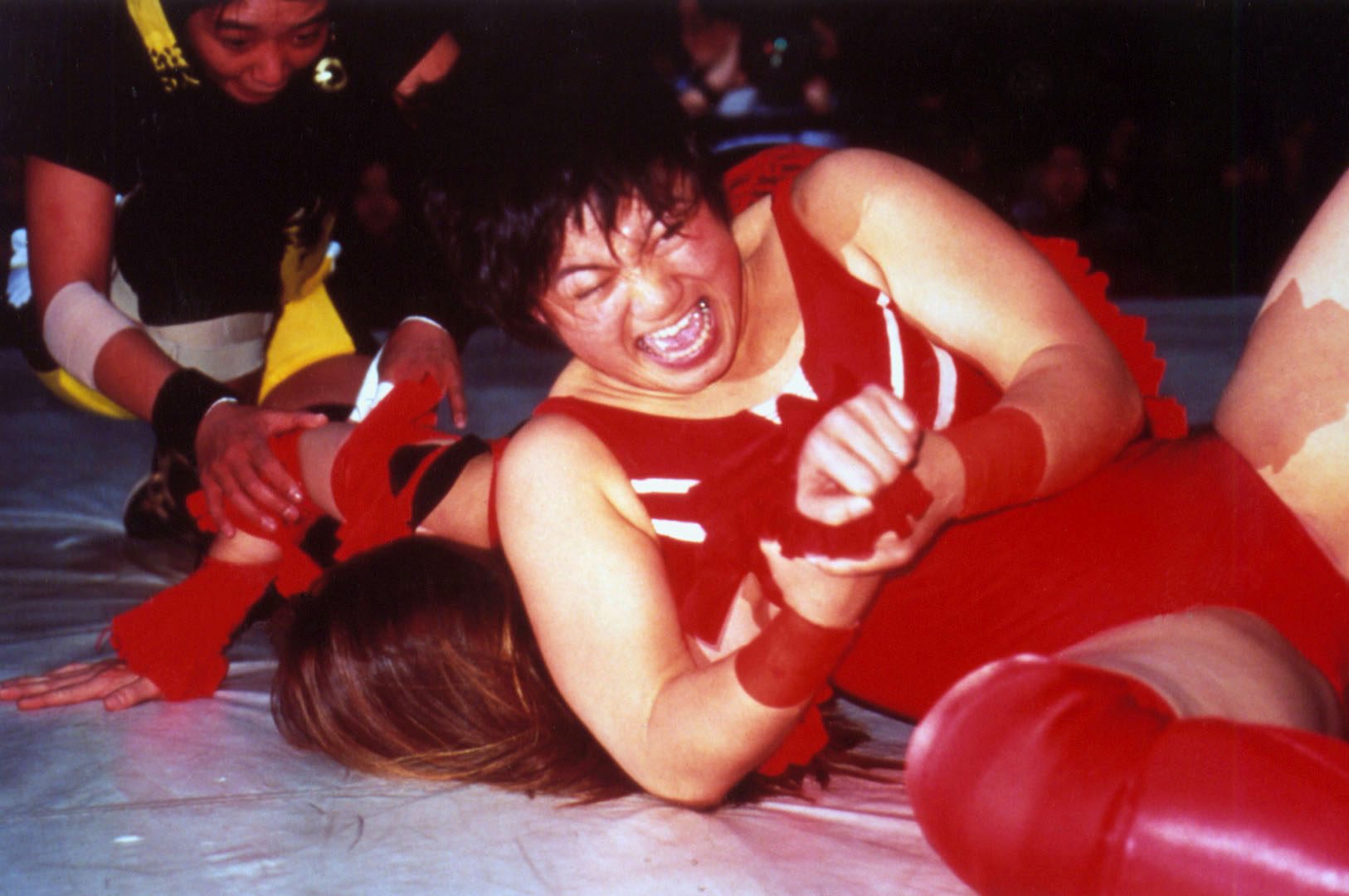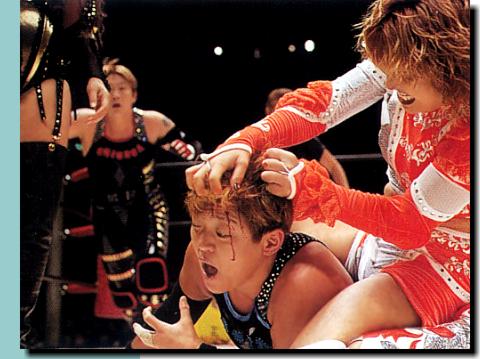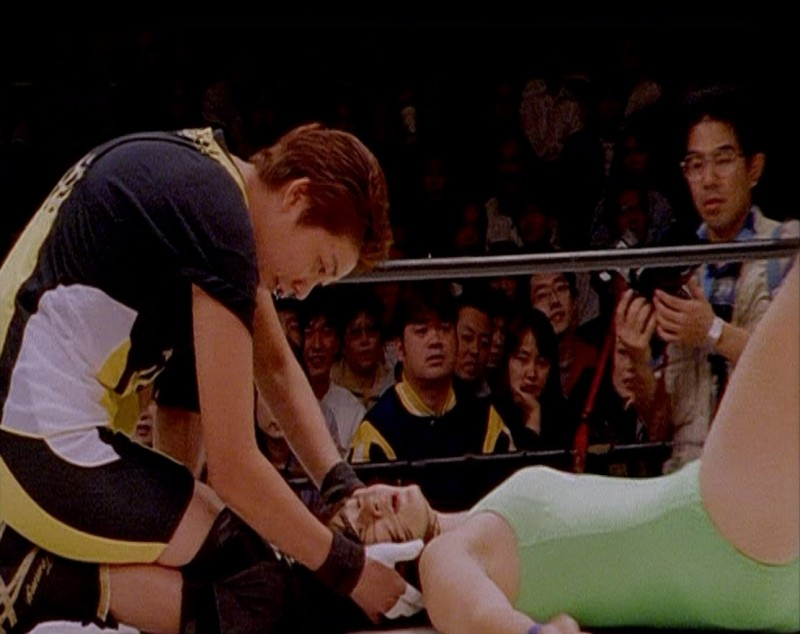Gaea Girls
England/Japan | 2000 | 62 minutes | Color | 35mm/DVD | Subtitled | Order No. 01727
SYNOPSIS
PRESS
“Longinotto and Williams's ability to penetrate facades is remarkable. The filmmakers build their story in a way that's more compelling and suspenseful than many narrative films.”
SCREENING HIGHLIGHTS AND AWARDS
- Edinburgh International Film Festival, Best of Festival Section
- Chicago International Film Festival, Silver Hugo
- San Francisco International Film Festival
- Margaret Mead Film Festival
- Toronto International Film Festival
- Berlin International Film Festival
- Sydney International Film Festival
- Sheffield Documentary Film Festival
- Aukland International Film Festival
- Rencontres Internationales de Cinema a Paris
- True/False Film Festival
ABOUT FILMMAKER(S)
Kim Longinotto (born 1952) is a British documentary filmmaker, well known for making films that highlight the plight of female victims of oppression or discrimination. Longinotto studied camera and directing at the National Film and Television School in Beaconsfield, England, where she now tutors occasionally.
Longinotto was born to an Italian father and a Welsh mother; her father was a photographer who later went bankrupt. At the age of 10 she was sent to a draconian all-girls boarding school, where she found it hard to make friends due to the mistress forbidding anyone to talk to her for a term after she became lost during a school trip. After a period of homelessness, Longinotto went on to Essex University to study English and European literature and later followed friend and future filmmaker, Nick Broomfield to the National Film and Television School. While studying, she made a documentary about her boarding school that was shown at the London Film Festival, since when she has continued to be a prolific documentary filmmaker.
Longinotto is an observational filmmaker. Observational cinema, also known as direct cinema, free cinema or cinema verite, usually excludes certain documentary techniques such as advanced planning, scripting, staging, narration, lighting, reenactment and interviewing. Longinotto’s unobtrusiveness, which is an important part of observational documentary, gives the women on camera a certain voice and presence that may not have emerged with another documentary genre. She has received a number of awards for her films over the years, including a BAFTA for her documentary PINK SARIS.
Among her more than 20 films, she has followed a teenager struggling to become a wrestling star in 2000’s GAEA GIRLS, challenged the tradition of female genital mutilation in Kenya in 2002’s THE DAY I WILL NEVER FORGET, and told the story of an Indian Muslim woman who smuggled poetry out to the world while locked up by her family in 2013’s SALMA. In 2015's DREAMCATCHER Longinotto looks at the life and work of a former sex worker who rescues Chicago girls from the street.
Her new film SHOOTING THE MAFIA, premiered at the 2019 Sundance Film Festival. (3/19)
Jano Williams went to Japan in 1974 intending to stay one year and didn’t come home for 14. While there she worked at the Japanese Broadcasting Corporation NHK, her work involved the making of radio programs about the individuals and structures that make up Japanese society. She subsequently moved to the television company NTV. She learned Japanese and became totally immersed in the Japanese way of life and contributed many articles to Japanese newspapers and magazines. A year after her return to England she went back to Japan with Kim Longinotto to make EAT THE KIMONO (1990) about the radical woman performer Hanayagi Genshu. This was followed by DREAM GIRLS (1993) about the all women Takarazuka Dance Theatre and then SHINJUKU BOYS (1995) about young transsexual men who had been born with women’s bodies. Subsequently she went back to film in Japan for another production company in the course of which she first met the Gaea girls. She is now living in Bristol and hopes to continue making films about the Japan that reflect her bond with that country. (09/09)
MATERIALS




